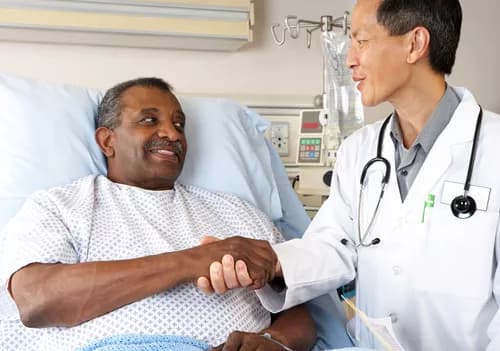
Soothing Words Do More Than Pills To Calm Anxious Patients, Study Shows
Anxious patients heading into surgery often receive medication to ease their fears, but a few calming words from their physicians might actually be more effective medicine. In fact, "conversational hypnosis" as the approach is known, may do a better job than pills for relaxing patients before anesthesia and surgery, suggests research being presented at the ANESTHESIOLOGY™ 2015 annual meeting.
"The anesthesiologist uses calm, positive words to divert the patient's attention and help him or her feel more comfortable," said Emmanuel Boselli, M.D., Ph.D., lead author of the study and a physician anesthesiologist at Édouard Herriot Hospital, Lyons, France. "It reflects a change in the way the physician interacts with the patient and takes just a few minutes."
Researchers used conversational hypnosis, which consists of talking quietly and positively to the patient (e.g. "Keep calm and quiet" vs. "Please don't move") and focusing the patient's attention on something other than the preparations for surgery and anesthesia procedure. They compared the results of hypnosis to the use of a standard medication called hydroxyzine, which is taken orally to relax patients before their procedure. To measure the effects of both, they asked patients to provide a subjective measurement of their comfort on a scale ranging from 0 (no comfort) to 10 (maximal comfort), as well as used an objective test called the Analgesia/Nociception Index (ANI), a 100-point index that is based on heart rate variability. When patients are extremely anxious and stressed the ANI is zero and when they are completely relaxed, the ANI is 100.
In the study of 100 patients undergoing hand surgery, 50 had conversational hypnosis while being given regional anesthesia, and 50 were given 25 mg of oral hydroxyzine 30 minutes to an hour before the induction of anesthesia. Their levels of relaxation were assessed using the ANI as well as the comfort scale, both prior to and after receiving hypnosis or medication and anesthesia.
Patients measured an average ANI of 51 before and 78 after hypnosis, whereas those who had medication averaged 63 before and 70 after. The average comfort scale of those who had received hypnosis was 6.7 before and 9.3 after, while patients who had medication averaged 7.8 before and 8.3 after.
According to Dr. Boselli, the study suggests that conversational hypnosis might increase patient self-reported comfort during regional anesthesia without medication, and that this effect might be objectively monitored using the ANI. "Conversational hypnosis can be used prior to surgery in conscious patients having local or regional anesthesia," said Dr. Boselli. "It also could be beneficial before general anesthesia to decrease patient anxiety."
The above post is a redistributed news release provided by American Society of Anesthesiologists (ASA). Note: Materials may be edited for content and length.
Disclaimer: DoveMed is not responsible for the adapted accuracy of news releases posted to DoveMed by contributing universities and institutions.
Related Articles
Test Your Knowledge
Asked by users
Related Centers
Related Specialties
Related Physicians
Related Procedures
Related Resources
Join DoveHubs
and connect with fellow professionals

0 Comments
Please log in to post a comment.